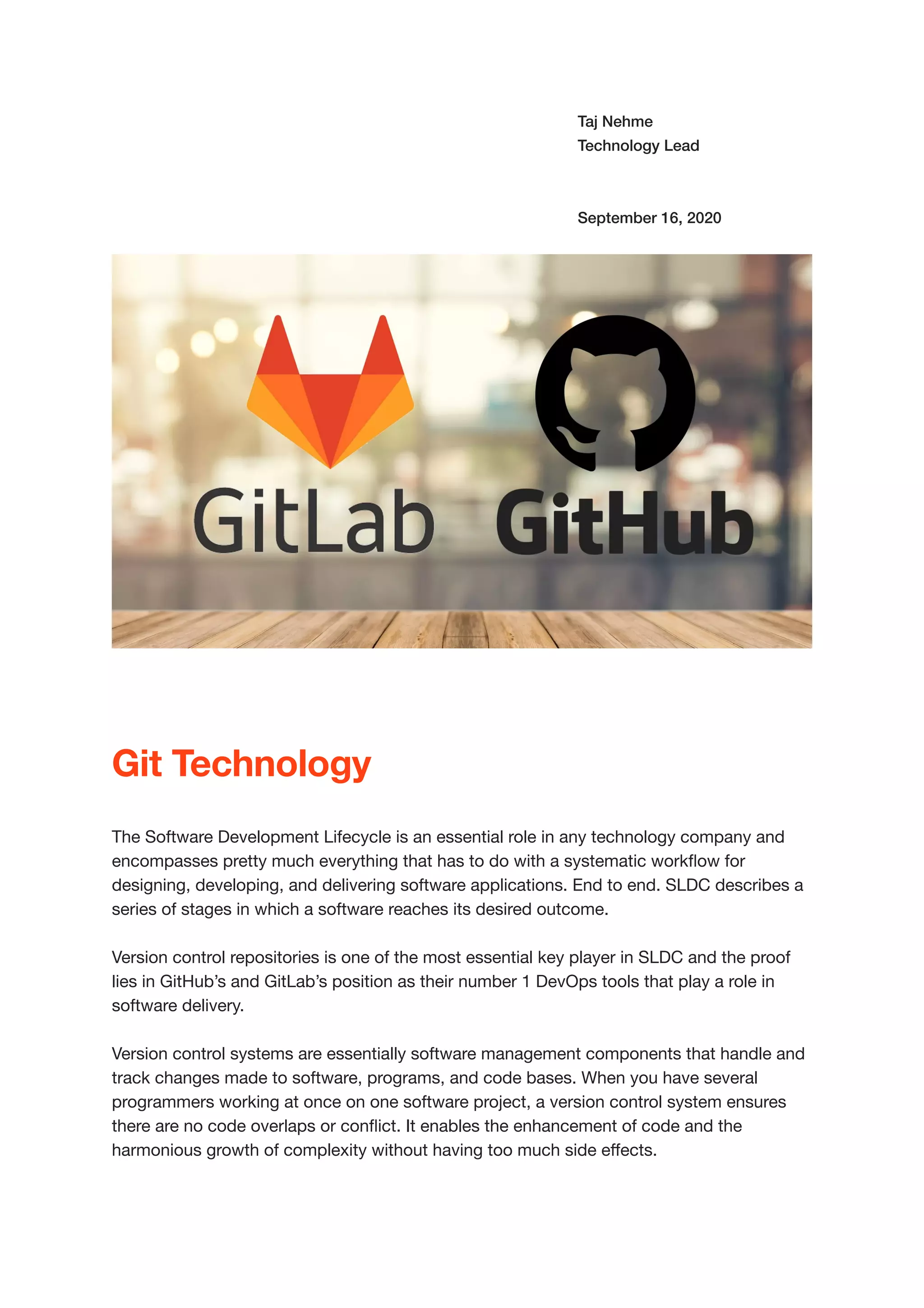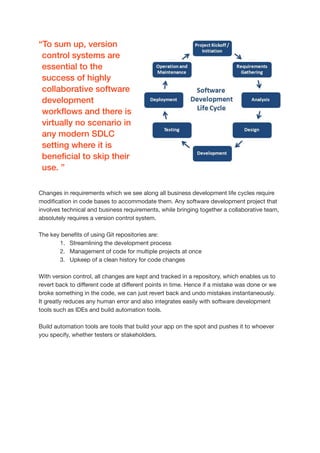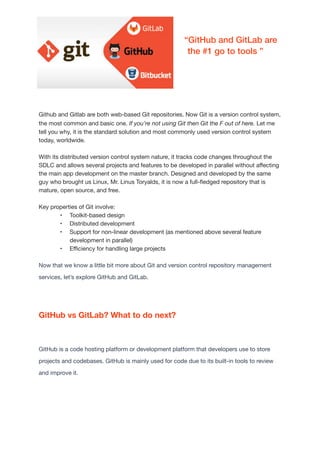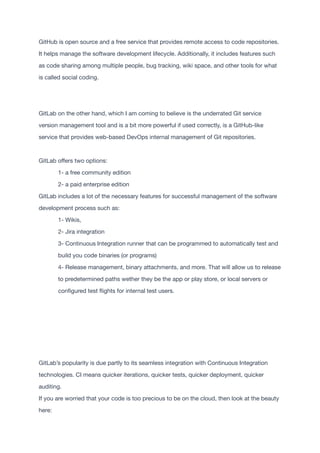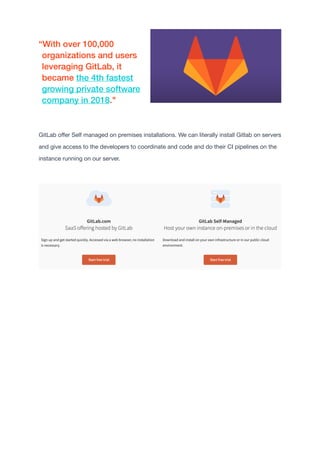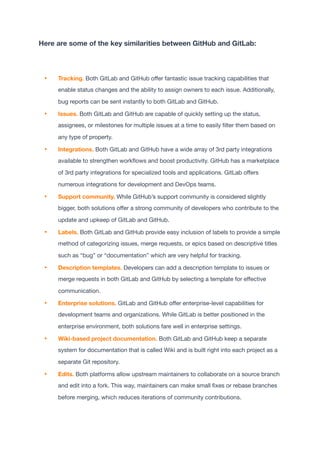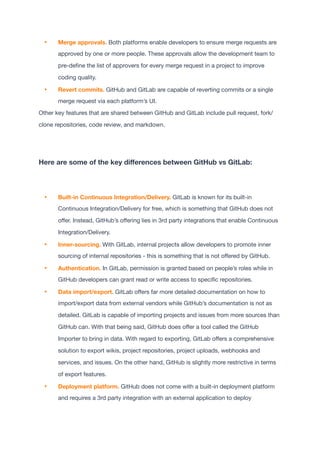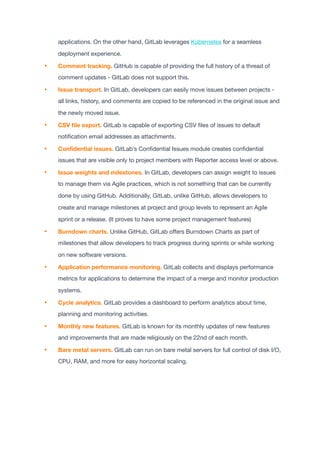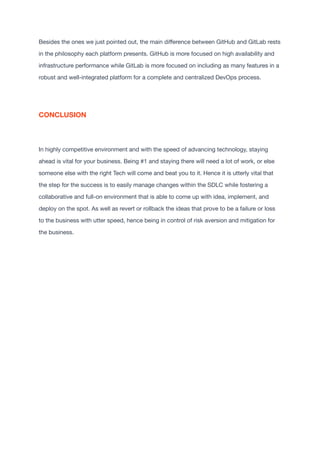Version control systems like Git are essential tools in software development that allow tracking of code changes and collaboration between programmers. Git repositories provided by GitHub and GitLab are two of the most popular options. While GitHub is mainly used for code sharing and includes social features, GitLab provides additional DevOps capabilities like integrated continuous integration and deployment. Both tools have similar features for code review, issue tracking, and documentation, but GitLab offers more robust project management and security features for enterprises. Version control systems streamline development and allow easy reverting of mistakes or changes, improving productivity and reducing errors in software projects.
